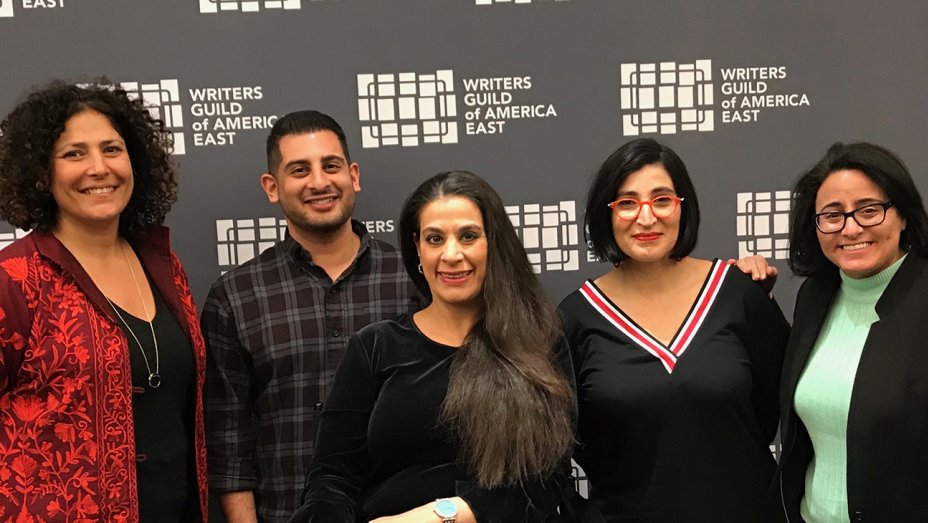Hawzah News Agency (New York, US) – There has never been a more important time for positive, nuanced and authentic portrays of Muslims on television and in film and digital media. That was the message, at least, on Monday evening at a panel discussion with Muslim writers and creators Negin Farsad (The Muslims Are Coming!), Farhan Arshad (CBS’ Man With a Plan), Amber Fares (America Inside Out With Katie Couric) and Maysoon Zayid, a disability advocate and founder of the annual New York Arab-American Comedy Festival.
Hosted by the Writers Guild of America East in Lower Manhattan in collaboration with the Hollywood bureau at the Muslim Public Affairs Council (MPAC), the 90-minute panel shed light on current bright spots of Muslim representation in media, emphasized the need for improvement and offered insight for the audience of aspiring writers and industry peers on the next steps necessary to accomplish those goals.
“There’s some wonderful representation that’s happening in the industry, but the little that we are seeing is not nearly enough,” director of MPAC’s Hollywood bureau Sue Obeidi told The Hollywood Reporter prior to the panel, citing series that MPAC has consulted on like Grey’s Anatomy, Tom Clancy’s Jack Ryan, The Affair and The Looming Tower. “We are excited about the momentum that’s happening in the industry, and we don’t want this to be a fleeting moment but a movement towards not only inclusion but respect and appreciation of the Muslim community.”
Right out the gate at the panel, there was mention of the Christchurch mosque shootings in New Zealand earlier this month and such instances' correlation to problematic, stereotypical portrayals of Muslims as terrorists and violent extremists. Arshad said that he believes continued and expanded positive portrayals of his community will similarly lead to changed sentiment.
"Any time I’ve had a preconceived notion about someone, it’s always gone away once I’ve gotten to know that person,” he said. "TV is the way you get to know people if you don’t know them in your own life."
Each panelist offered several ways in which that goal can be realized. One of the first is to know your audience. Fares explained, for instance, how when working with Katie Couric, she had to acknowledge that not all viewers are as well versed in the cultural issues she wanted to tackle. An education was in order.
End.

